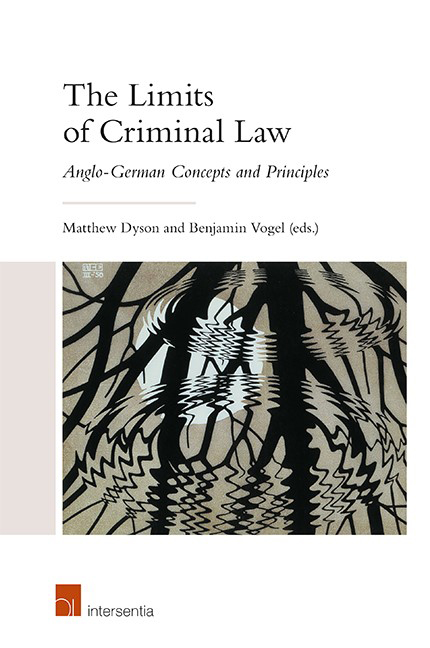Book contents
- Frontmatter
- Preface
- Contents
- List of Cases
- List of Abbreviations
- List of Contributors
- Chapter 1 Introduction
- PART I CORE PRINCIPLES OF CRIMINAL LAW
- PART II CRIME AND TORT
- PART III CRIME AND MEDICAL
- PART IV CRIME AND REGULATION
- PART V ADMINISTRATIVE SANCTIONS
- PART VI ALTERNATIVE ENFORCEMENT
- PART VII COUNTER-TERRORISM
- PART VIII CRIME AND INTELLIGENCE
- PART IX CONCLUSION
- Index
- About the Editors
Chapter 4 - Core Principles Compared: The Law’s Identity between Substance and Procedure
Published online by Cambridge University Press: 11 February 2021
- Frontmatter
- Preface
- Contents
- List of Cases
- List of Abbreviations
- List of Contributors
- Chapter 1 Introduction
- PART I CORE PRINCIPLES OF CRIMINAL LAW
- PART II CRIME AND TORT
- PART III CRIME AND MEDICAL
- PART IV CRIME AND REGULATION
- PART V ADMINISTRATIVE SANCTIONS
- PART VI ALTERNATIVE ENFORCEMENT
- PART VII COUNTER-TERRORISM
- PART VIII CRIME AND INTELLIGENCE
- PART IX CONCLUSION
- Index
- About the Editors
Summary
Our opening two chapters capture the value criminal lawyers in each jurisdiction place on limits within the criminal law. The content of those limits is what a national lawyer would recognise and the terminology, though made accessible to those from other legal systems, conveys how the issues are framed by and for those legal actors. The core principles discussed in these two chapters will be picked up throughout the rest of this volume. They are essential reading for readers of this volume just as much as they are essential knowledge for legal actors within the criminal justice system of each jurisdiction. Each legal system structures and values those principles differently and this brief comparative conclusion cannot explore them all. This comparative conclusion will draw out some of the key limits and explore what characteristics those limits suggest for each system. It will do so by first considering what is being limited and two categories are useful here: the criminal law's normative limits – how its principled constraints are placed, or chafed against, within the criminal law, or put another way, that which demarcates criminal principles from some other area of law; and then, its performative limits – the practical constraints on the effectiveness of the law, and the practical reasons why the limits themselves might not contain the criminal law. The final section of this conclusion will look at the nature of the limits teased out in the two chapters on general principles: how they are perceived, how they shape the law and how they interrelate to each other.
WHAT THE CORE PRINCIPLES ARE LIMITING
The normative limits of criminal law explored in this pair of chapters have a great deal in common. Each aim would be recognised by lawyers in each system, though the form of those limits, and how strictly that form must be adhered to, vary significantly. We might usefully distinguish between substantive law, criminal procedure and the sanctions the systems impose.
Both chapters give numerous examples of substantive principles, like legal certainty, the importance of moral stigma through to agency and culpability, and the role of doctrinal concepts of fair attribution in giving shape to legislative and judicial development of the law. These principles appear to be defined in similar ways, often virtually identical ways, and are used to do the same work in broadly the same way.
- Type
- Chapter
- Information
- The Limits of Criminal LawAnglo-German Concepts and Principles, pp. 71 - 76Publisher: IntersentiaPrint publication year: 2020



